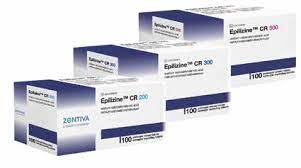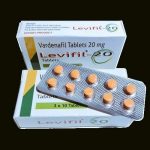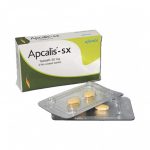Epilizine: Uses, Dosage, Side Effects, Interactions, Warnings

Epilizine is a South African brand of Valproic Acid, a class of medications called anticonvulsants. It works by increasing the amount of a certain natural substance in the brain. Valproic acid is used alone or with other medications to treat certain types of seizures. Valproic acid is also used to treat mania (episodes of frenzied, abnormally excited mood) in people with bipolar disorder (manic-depressive disorder; a disease that causes episodes of depression, episodes of mania, and other abnormal moods). It is also used to prevent migraine headaches but not to relieve headaches that have already begun.
The anticonvulsant properties of valproic acid were discovered in 1967 by Meunier and Carraz. It very soon became widely used in epilepsy, generally in the form of sodium valproate. Valproic acid can be effective against many types of seizures common in children. It has been used for many years to treat children with absence seizures, for which it is just as effective as Zarontin (ethosuximide).
How is Epilizine used?
Valproic acid comes as a capsule, an extended-release (long-acting) tablet, a delayed-release (releases the medication in the intestine to prevent damage to the stomach) tablet, a sprinkle capsule (capsule that contains small beads of medication that can be sprinkled on food), and a syrup (liquid) to take by mouth. The syrup, capsules, delayed-release tablets, and sprinkle capsules are usually taken two or more times daily. The extended-release tablets are usually taken once a day. Take Epilizine at around the same time(s) every day. Take Epilizine with food to help prevent the medication from upsetting your stomach. Follow the directions on your prescription label carefully, and ask your doctor or pharmacist to explain any part you do not understand. Take Epilizine exactly as directed. Do not take more or less of it or take it more often than prescribed by your doctor.
Swallow the regular capsules, delayed-release capsule, and extended-release tablets whole; do not split, chew, or crush them.
You can swallow the sprinkle capsules whole, or you can open the capsules and sprinkle the beads they contain on a teaspoonful of soft food, such as applesauce or pudding. Swallow the mixture of food and medication beads right after you prepare it. Be careful not to chew the beads. Do not store unused mixtures of food and medication.
Do not mix the syrup into any carbonated drink. Divalproex sodium, valproate sodium, and valproic acid products are absorbed by the body in different ways and cannot be substituted for one another. If you need to switch from one product to another, your doctor may need to adjust your dose. Each time you receive your medication, check to be sure that you have received the product that was prescribed for you. Ask your pharmacist if you are not sure that you received the right medication.
Your doctor may start you on a low dose of Epilizine and gradually increase your dose.
Epilizine may help to control your condition but will not cure it. Continue to take valproic acid even if you feel well. Do not stop taking Epilizine without talking to your doctor, even if you experience side effects such as unusual changes in behavior or mood or if you find out that you are pregnant. If you suddenly stop taking Epilizine, you may experience a severe, long-lasting and possibly life-threatening seizure. Your doctor will probably decrease your dose gradually.
What side effects can Epilizine cause?
Epilizine may cause side effects. Tell your doctor if any of these symptoms are severe or do not go away:
• drowsiness
• dizziness
• headache
• diarrhea
• constipation
• changes in appetite
• weight changes
• back pain
• agitation
• mood swings
• abnormal thinking
• uncontrollable shaking of a part of the body
• problems with walking or coordination
• uncontrollable movements of the eyes
• blurred or double vision
• ringing in the ears
• hair loss
Some side effects can be serious. If you experience any of the following symptoms, call your doctor immediately:
• unusual bruising or bleeding
• tiny purple or red spots on the skin
• fever
• rash
• bruising
• hives
• difficulty breathing or swallowing
• swollen glands
• swelling of face, eyes, lips, tongue, or throat
• peeling or blistering skin
• confusion
• tiredness
• vomiting
• drop in body temperature
• weakness or swelling in the joints
Valproic acid may cause other side effects. Call your doctor if you have any unusual problems while taking this medication.
Epilizine Interactions
It is essential to be aware of potential drug interactions when taking Epilizine because these interactions can affect the medication’s effectiveness and may lead to side effects or complications. Here are some common interactions:
1. Other Antiepileptic Drugs (AEDs): When Epilizine is used in combination with other antiepileptic drugs, it can alter their blood levels. This might require dosage adjustments to maintain the desired therapeutic effect.
2. Carbamazepine and Phenytoin: These drugs can decrease Epilizine’s concentration in the blood, potentially reducing its effectiveness.
3. Lamotrigine: Concurrent use with Epilizine can increase the risk of a severe skin reaction called Stevens-Johnson syndrome.
4. Warfarin: Epilizine may increase the effects of warfarin, an anticoagulant, leading to an increased risk of bleeding.
5. Selective Serotonin Reuptake Inhibitors (SSRIs): Epilizine can increase the levels of certain SSRIs in the blood, potentially leading to increased side effects.
6. Antipsychotic Medications: Combining Epilizine with antipsychotic drugs like risperidone can increase the risk of side effects such as tremors.
7. Central Nervous System Depressants: Epilizine may enhance the sedative effects of drugs that affect the central nervous system, such as alcohol, benzodiazepines, and some sleep medications.
8. Aspirin and Other NSAIDs: Epilizine can increase the risk of bleeding when taken with nonsteroidal anti-inflammatory drugs (NSAIDs) like aspirin.
9. Erythromycin and Other Macrolide Antibiotics: These antibiotics can increase Epilizine levels in the blood, potentially leading to adverse effects.
10. Meropenem: Epilizine can reduce the effectiveness of meropenem, an antibiotic.
It’s important to inform your healthcare provider about all medications, supplements, and herbal products you are taking before starting Epilizine. They can adjust your treatment plan and monitor you for potential interactions. Your doctor will carefully consider the benefits and risks of using Epilizine in the context of your specific medical condition and medication regimen. Always follow your healthcare provider’s guidance and inform them of any changes in your medication or health status.
Epilizine Safety Information
Epilizine may cause serious or life-threatening damage to the liver that is most likely to occur within the first 6 months of therapy. The risk of developing liver damage is greater in children who are younger than 2 years of age and are also taking more than one medication to prevent seizures, have certain inherited diseases that may prevent the body from changing food to energy normally, or any condition that affects the ability to think, learn, and understand. Tell your doctor if you have a certain inherited condition that affects the brain, muscles, nerves, and liver (Alpers Huttenlocher Syndrome), urea cycle disorder (an inherited condition that affects the ability to metabolize protein), or liver disease. Your doctor will probably tell you not to take valproic acid. If you notice that your seizures are more severe or happen more often or if you experience any of the following symptoms, call your doctor immediately: excessive tiredness, lack of energy, weakness, pain on the right side of your stomach, loss of appetite, nausea, vomiting, dark urine, yellowing of your skin or the whites of your eyes, or swelling of the face.
Epilizine can cause serious birth defects (physical problems that are present at birth), especially affecting the brain and spinal cord and can also cause lower intelligence and problems with movement and coordination, learning, communication, emotions, and behavior in babies exposed to valproic acid before birth. Tell your doctor if you are pregnant or plan to become pregnant. Women who are pregnant or who are able to become pregnant and are not using effective birth control must not take Epilizine to prevent migraine headaches. Women who are pregnant should only take Epilizine to treat seizures or bipolar disorder (manic-depressive disorder; a disease that causes episodes of depression, episodes of mania, and other abnormal moods) if other medications have not successfully controlled their symptoms or cannot be used. Talk to your doctor about the risks of using Epilizine during pregnancy. If you are a woman of childbearing age, including girls from the start of puberty, talk to your doctor about using other possible treatments instead of Epilizine. If the decision is made to use Epilizine, you must use effective birth control during your treatment. Talk to your doctor about birth control methods that will work for you. If you become pregnant while taking Epilizine, call your doctor immediately. Epilizine can harm the fetus.
Epilizine may cause serious or life-threatening damage to the pancreas. This may occur at any time during your treatment. If you experience any of the following symptoms, call your doctor immediately: ongoing pain that begins in the stomach area but may spread to the back nausea, vomiting, or loss of appetite.
Keep all appointments with your doctor and the laboratory. Your doctor will order certain lab tests to check your response to Epilizine. Talk to your doctor about the risks of taking Epilizine or of giving Epilizine to your child.





